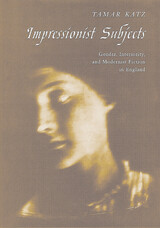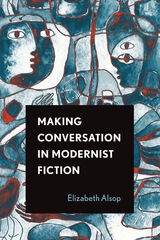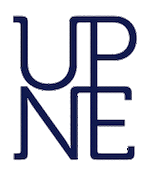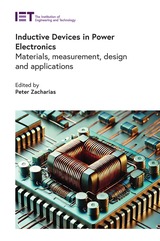3 books about Modernist Fiction

Impressionist Subjects
Gender, Interiority, and Modernist Fiction in England
Tamar Katz
University of Illinois Press, 2000
Exploring the intersection of ideas about woman, subjectivity, and literary authority, Impressionist Subjects reveals the female subject as crucial in framing contradictions central to modernism, particularly the tension between modernism's claim to timeless art and its critique of historical conditions. Against the backdrop of the New Woman movement of the 1890s, Tamar Katz establishes literary impressionism as integral to modernist form and to the modernist project of investigating the nature and function of subjectivity. Focusing on a duality common to impressionism and contemporary ideas of feminine subjectivity, Katz shows how the New Woman reconciled the paradox of a subject at once immersed in the world and securely enclosed in a mysterious interiority. Book chapters feature discussion of modernists including Walter Pater, George Egerton, Sarah Grand, Henry James, Joseph Conrad, Ford Madox Ford, Dorothy Richardson, and Virginia Woolf.
Sophisticated and tightly argued, Impressionist Subjects is a substantial contribution to the reassessment and expansion of the modernist fiction canon.
[more]

Making Conversation in Modernist Fiction
Elizabeth Alsop
The Ohio State University Press, 2019
Making Conversation in Modernist Fiction examines the role of character dialogue in key works of Anglo-American modernism. Through close analysis of texts including The Ambassadors, The Sun Also Rises, “The Dead,” The Sound and the Fury, Absalom, Absalom!, The Waves, Between the Acts, “Melanctha,” and Cane, the book documents the ways in which some of the most canonical British and American modernist authors transformed the conventions traditionally used to render talk in fiction.
If historically dialogue had been treated as a subordinate element in fiction—a tool for developing character or advancing plot—this book demonstrates that writers such as Henry James, Ernest Hemingway, James Joyce, William Faulkner, Virginia Woolf, and Gertrude Stein would increasingly emphasize it as a poetic structure in its own right. In this way, Alsop argues, modernist writers “make” conversation in radically new ways and for a diverse range of expressive and communicative ends. Over the course of five chapters that explore this previously overlooked avenue of modernist innovation, Making Conversation offers readers a radical new paradigm not only for understanding fictional talk but also for interpreting some of the most celebrated examples of early twentieth-century narrative.
If historically dialogue had been treated as a subordinate element in fiction—a tool for developing character or advancing plot—this book demonstrates that writers such as Henry James, Ernest Hemingway, James Joyce, William Faulkner, Virginia Woolf, and Gertrude Stein would increasingly emphasize it as a poetic structure in its own right. In this way, Alsop argues, modernist writers “make” conversation in radically new ways and for a diverse range of expressive and communicative ends. Over the course of five chapters that explore this previously overlooked avenue of modernist innovation, Making Conversation offers readers a radical new paradigm not only for understanding fictional talk but also for interpreting some of the most celebrated examples of early twentieth-century narrative.
[more]

The Rhetoric of Modernist Fiction
From a New Point of View
Morton Levitt
University Press of New England, 2005
Though it has been one of the most influential critical works of the last fifty years, Wayne Booth’s The Rhetoric of Fiction has disappointed many readers in its treatment of modernism. Despite Booth’s astute and influential readings of earlier novels, his system shed little light on the experiments in point of view that characterize many more recent works. Despite a revision some two decades after its first publication, the book continues to strike many readers as outdated in its choices of authors and texts. In a bold updating of that seminal work, Morton P. Levitt, long-time editor of the Journal of Modern Literature, explores the rhetoric of point of view in modernist and post-modernist novels, offering new insights into some of the greatest works of the last century. As the editor of one of the most important journals in the field, Levitt has been uniquely situated to absorb and reflect critically upon the most significant scholarship on modernist fiction. In a series of subtle, persuasive readings, he demonstrates that the rejection of omniscience is one of the defining characteristics of modernist and post-modernist novels. From Joyce and Woolf to Philip Roth, Don DeLillo, and José Saramago, Levitt discusses a wide range of texts in readings that will be accessible to students and invaluable to scholars.
[more]
READERS
Browse our collection.
PUBLISHERS
See BiblioVault's publisher services.
STUDENT SERVICES
Files for college accessibility offices.
UChicago Accessibility Resources
home | accessibility | search | about | contact us
BiblioVault ® 2001 - 2025
The University of Chicago Press









